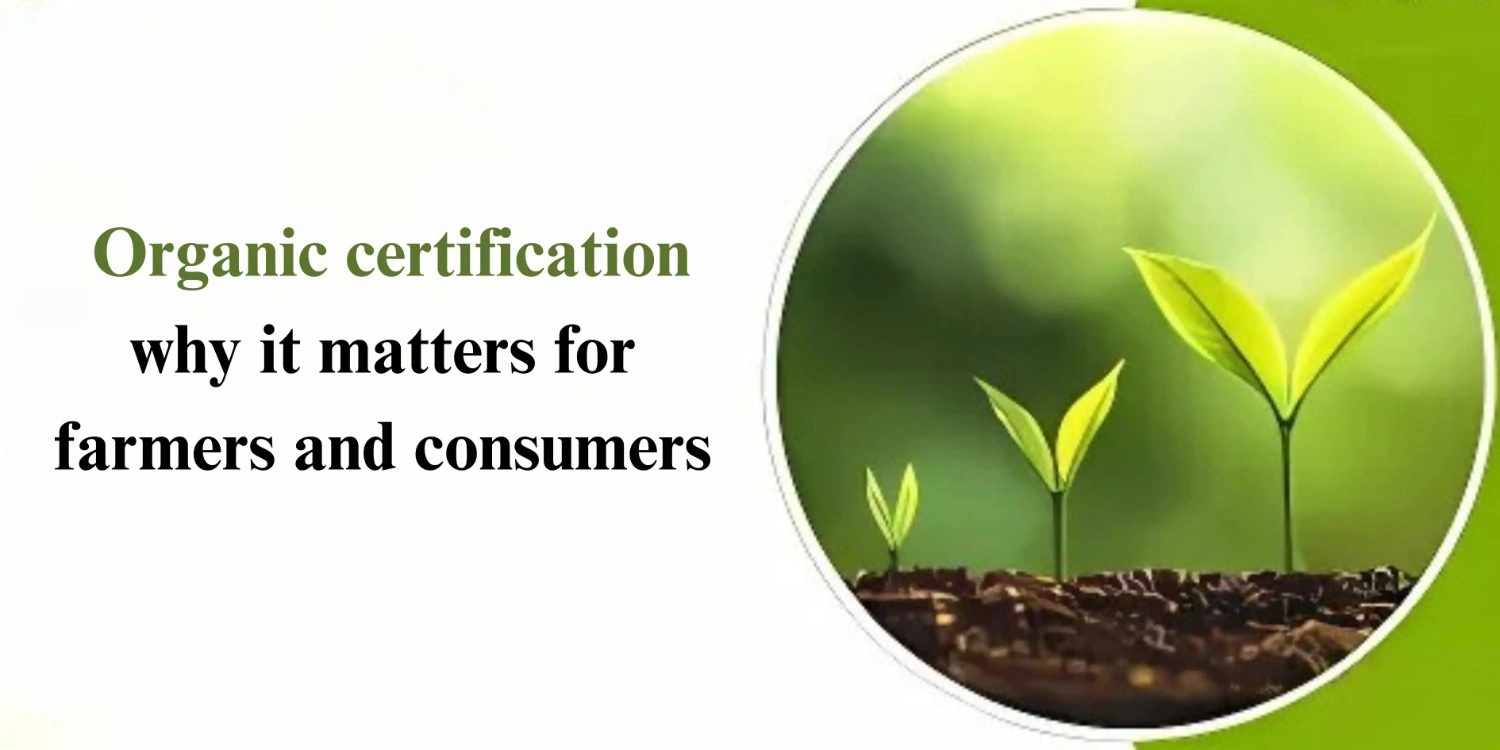Organic certification is a process for the cultivation of organic food and other agricultural food items. These businesses directly involved in food production that can be certified include farmers, food processors, retailers, and restaurants.
It is an authentication process for producing selected food items. Requirements vary from country to country and involve a set of production standards to grow, store, process, package purpose and shipments that include.
It is based upon standardised production and avoidance of synthetic inputs like fertilizers, pesticides, and other chemicals. It believes in the avoidance of genetically modified seeds.
Certified organic producers are also subject to the same agricultural food safety and other government regulations and norms.
There is growing demand for organic food based upon these organic certification, which relies upon the idea that organic certification ensures high quality, better tastes, longevity, prevents fraud, and promotes the commercialization of such products.
As with the flourishment of organic products in the market more and more consumer demand for the organic has increased through the proper channels of supermarkets, the certification is viewed as an approval serves as a product assurance which states “low fat” or complete diary, or 100% whole wheat which is a product assurance and “no preservatives”.
you Can Read Also: The farmer leader: Future of Leadership in Agriculture
ORGANIC STANDARD OF THE PRODUCE

The FSSAI has been initiated for laying down science-based standards for food and to monitor their manufacture, storage, distribution, sale, and import to ensure food safety and precautions for human consumption.
The FSSAI was established by the Food Safety and Standards Act, 2006.
FSSAI has notified the Food Safety and Standards Organic Food Regulations 2017, to benefit the farmer class to enhance their income. The regulations are classified into two segments of the certification participatory guarantee system(PGS) implemented by the Ministry of Agriculture and the Farmer Welfare National Programme for organic production (NPOP) implemented by the Ministry of Commerce and Industry. Their regulatory schemes ensure the safety and integrity of the organic food products and help in balancing the market mechanism.
ORGANIC FARMING CERTIFICATION:
Organic farming is playing a predominant role in sustainable farming, which focuses on maintaining a healthy balance with the environment and producing nutritious food. In India, there is an upsurge in the demand for organic food and a growing of umerist society.
The organic certification covers numerous products which including crops, animals, fish, and processed foods. The certificates process helps the supply chain become strong, which builds trust in organic products. Getting the organic certification in India is a difficult process.
It ensures that the farmers must follow the organic certification requirements and organic farming regulations. The certification makes sure that the organic farming remains true and vigilant to its truest self.
NSOP(National standard for organic production) is at the prime focus of this process. They set out the rules that farmers must follow, which include the relevance of managing the soil, controlling the pest mechanism, and the required inputs.
The certifications are as follows:
1. NPOP (National program for organic production) is well known in India.
2. APEDA ( Agriculture and Processed Food Products Export Development Authority)
3. PGS ( Participatory Guarantee System is a different choice. It is viable to sell organic food in India.
To maintain the organic certification in India, you need to be focused and follow the prescribed rules. Following the detailed record, undergo regular vigilance and checks, and stick to the organic labeling standard.
It’s relevant to document the details of your farming strategy, what inputs to use, and how to produce. Following the organic labeling rules is critical. You must keep the organic content accurate on your products and marketing to stay updated and vigilant.
BENEFITS OF ORGANIC FARMING
Organic farming is a technique of growing crops, vegetables. While maintaining the soil health economic balance in the environment. It is based on the sustainable ideology. It mainly depends upon the local atmospheric conditions and external stimuli rather than the stability of fertilizers or pesticides.
Organic farming is a science of cultivation with innovative techniques. Which benefits the ecosystem quality; it is a modern technique of production that completely relies upon natural ways of cultivation to lessen the waste in the environment.
Prohibition on the utilization of harmful pesticides
- Maintains healthy soil life
- Limits the usability of non-renewable sources of energy
- Using better irrigation facilities reduces water wastage.
- Organic crops use bio-fertilizers and enhance the nutrient content.
- Contributes to climate change mitigation
Organic cultivation reduces the overuse of energy consumption.
CERTIFIED ORGANIC PRODUCTS
Organic certification relies upon the nationally and internationally recognized set of standards, which solely aims at proving that the agricultural and food products have been produced without the application of any synthetic, chemically produced products.
There are different organizations like NPOP ( Indian organic APEDA) and based on EU regulations and the US National Organic Programme (NOP), to take into account the regulations procedure in place.
The certification is the mark of authenticity and purity. This certification is for the producer organization or a member of the food industries who want to commercialize organic food. The certification is considered a guarantee of quality and ensures safety to the consumers.
CONCLUSION
Organic farming is an advanced, novel concept in the history of Indian agriculture. Organic certification is a vibrant concept to list the products as organic, which are nutritious, safe, and authentic to consume. Organic certification is needed both by he producer and the consumer.
Organic farming produces organic food which healthier and nutrition-rich, cultivated without any synthetic chemicals. Organic farming is needed for a resilient form of agriculture. The organic cultivation reduces carbon emissions. This makes the organic food safe for consumption. Organic food is in high demand because of its quality and the technique of production techniques. It refines the food system for the planet.



